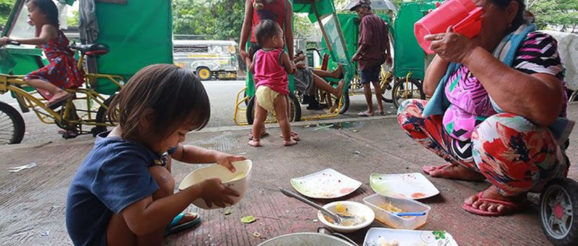Duterte signs innovation, poverty-monitoring legislation


PHLSTAR
PRESIDENT Rodrigo R. Duterte signed into law two measures — the Philippine Innovation Act and the Community-Based Monitoring System Act.
The President signed Republic Act (RA) No. 11293, which goes into the books as the Philippine Innovation Act, and RA No. 11315 or the Community-Based Monitoring System Act, on April 17. Malacañang released to reporters copies of the laws on Tuesday.
The Philippine Innovation Act authorizes the government to adopt innovation policies pursuant to Section 10, Article XIV of the Constitution that recognizes science and technology as “essential for national development and progress” and that prioritizes “research and development, invention, innovation, and their utilization.”
The policies to be adopted include placing innovation at the center of the State’s development policies; promoting a culture of strategic planning and innovation; investing in education, science, technology and innovation; and engaging the business sector, academe, scientific community and research institutions in innovation efforts for economic growth, among others.
The law creates the National Innovation Council (NIC), which will be responsible for developing the country’s innovation goals, priorities, and long-term national strategy.
The NIC is composed of the President as Chairperson, Director General of the National Economic and Development Authority (NEDA) as Vice Chairperson, and other Department Secretaries as Members.
Their tasks include to develop a National Innovation Agenda and Strategy Document, which will establish the country’s vision and long-term goals for innovation and provide a road map and strategies for improving innovation in government.
NEDA, in coordination with the Department of Science and Technology and the Department of Trade and Industry, will formulate and promulgate the implementing rules and regulations of the new law.
RA No. 11315 authorizes the government to adopt a community-based monitoring system (CBMS), “which generates updated and disaggregated data necessary in targeting beneficiaries, conducting more comprehensive poverty analysis and needs prioritization, designing appropriate policies and interventions, and monitoring impact over time.”
The CBMS, which is an organized technology-based system of collecting, processing and validating disaggregated data, is to be established and instituted in every city and municipality as an “economic and social tool towards the formulation and implementation of poverty alleviation and development programs” of government.
The National Statistician of the Philippine Statistics Authority, in consultation with the departments of Interior and Local Government, Agriculture, Health, Social Welfare and Development, Education, Housing and Urban Development, Labor and Employment, Environment and Natural Resources, and Information and Communications Technology, among others, will promulgate the rules and regulations of this law. — Arjay L. Balinbin
